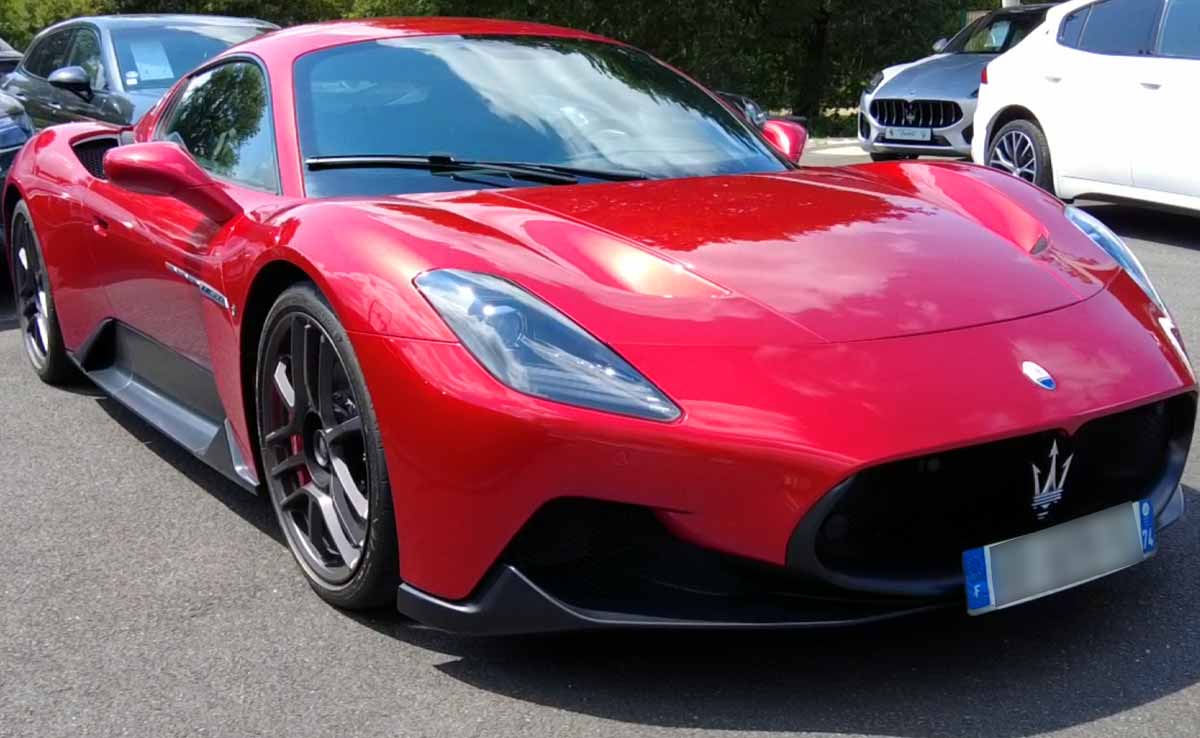
It wasn't my intention to write this review of the Maserati MC20. After all, it was unveiled in February 2020, so it's been five years already, and so it's already been the subject of numerous tests by the motoring press. But after my dealer Maserati Trident La Roche-sur-Yon lent me the Maserati MC20 for an afternoon, and I was itching to give my opinion on this car, which may well be the last of its generation.
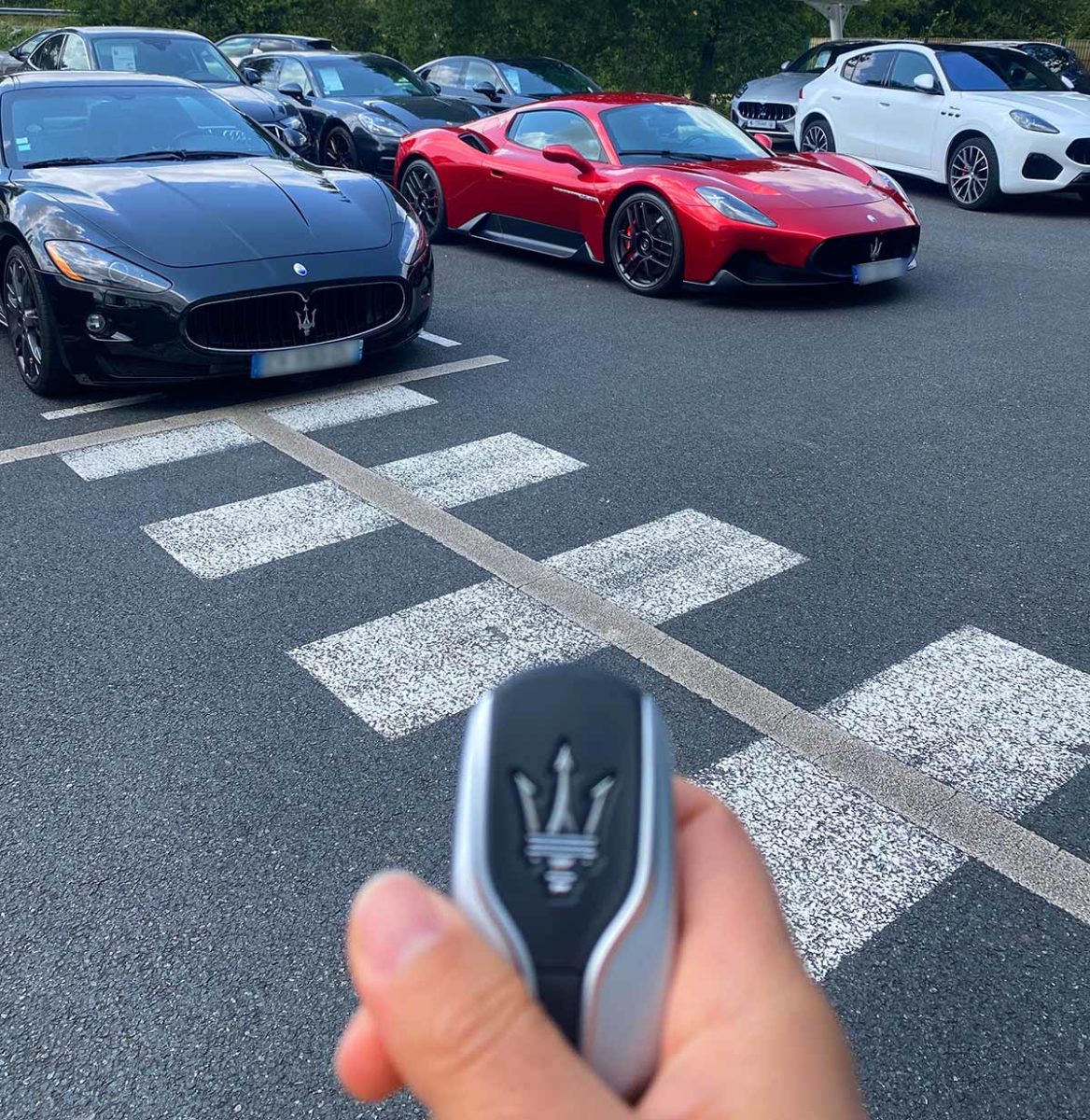
Design: one of today's finest
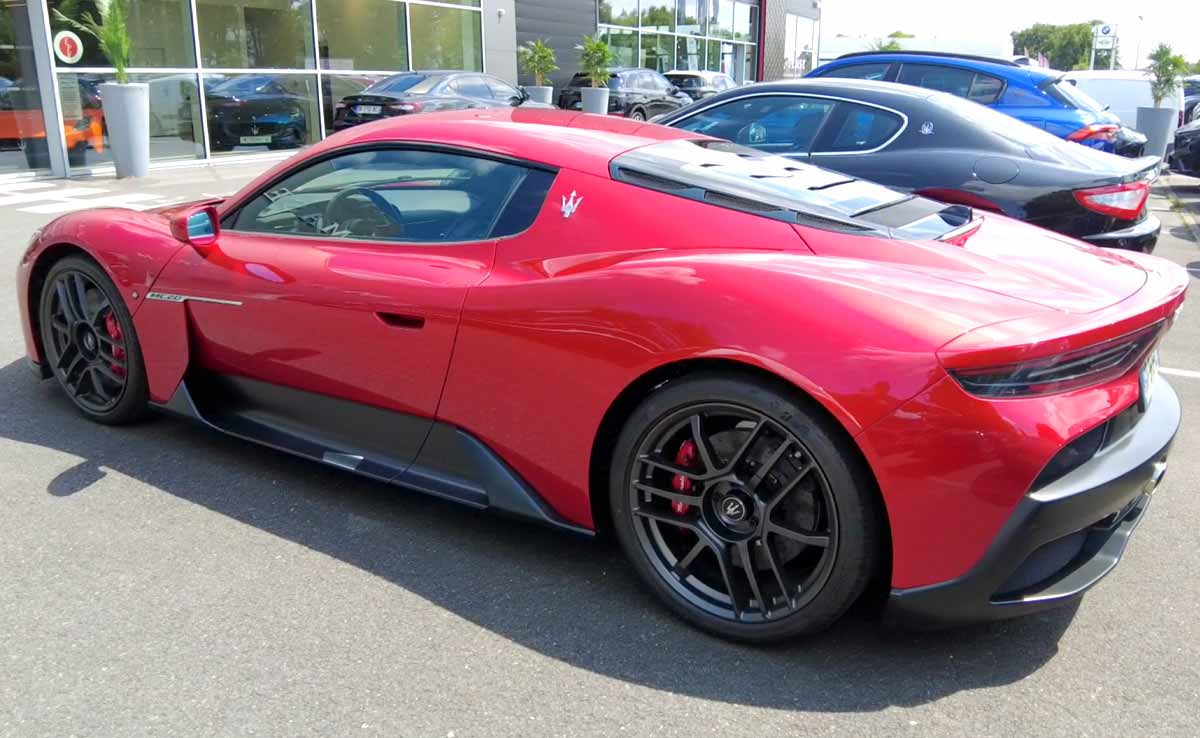
The design of the Maserati MC20 is probably the most Italian, the most Latin, of contemporary supercars. Where many supercars are increasingly guided by extreme optimization of aerodynamic flow, the MC20 offers a good compromise between curves and efficiency.
It's simple: during my test drive, I stopped twice and, each time, cars stopped to ask me what make and model it was. Five years on, this Maserati MC20 is still an unidentified rolling object. This MC20 looks even more exotic than a Lamborghini or Ferrari, with the "Rosso Vicente" color scheme helping to sublimate its bodywork.
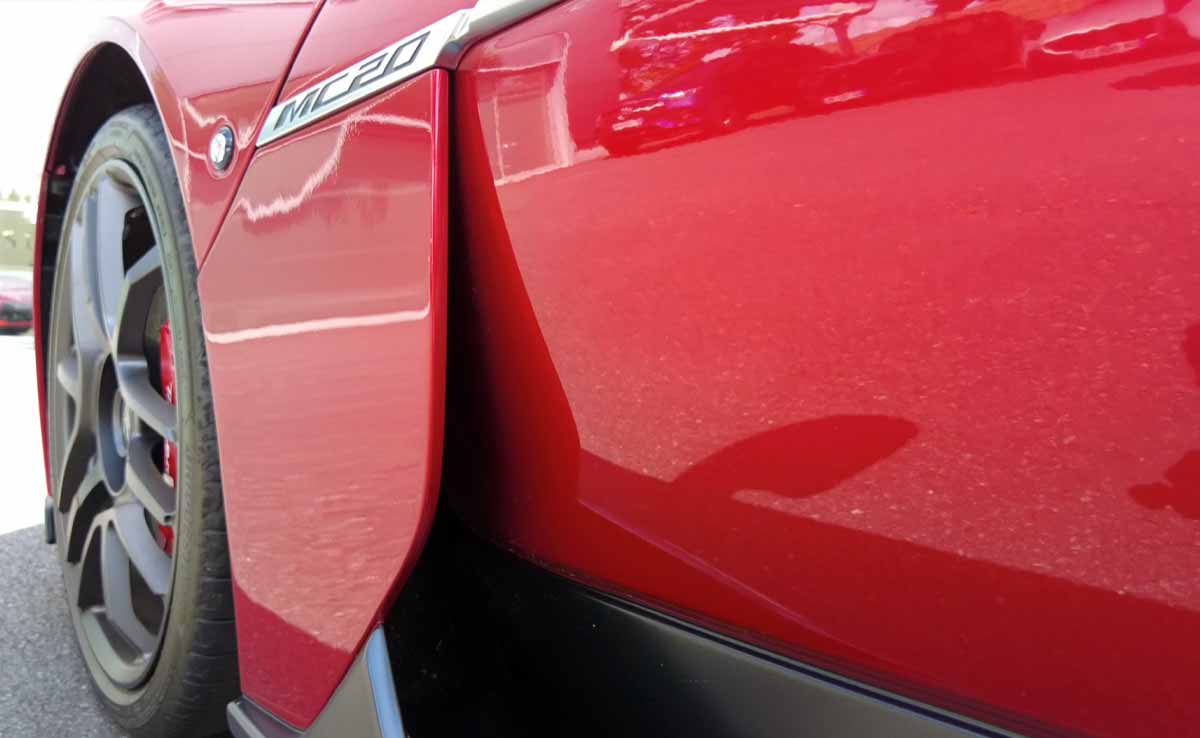
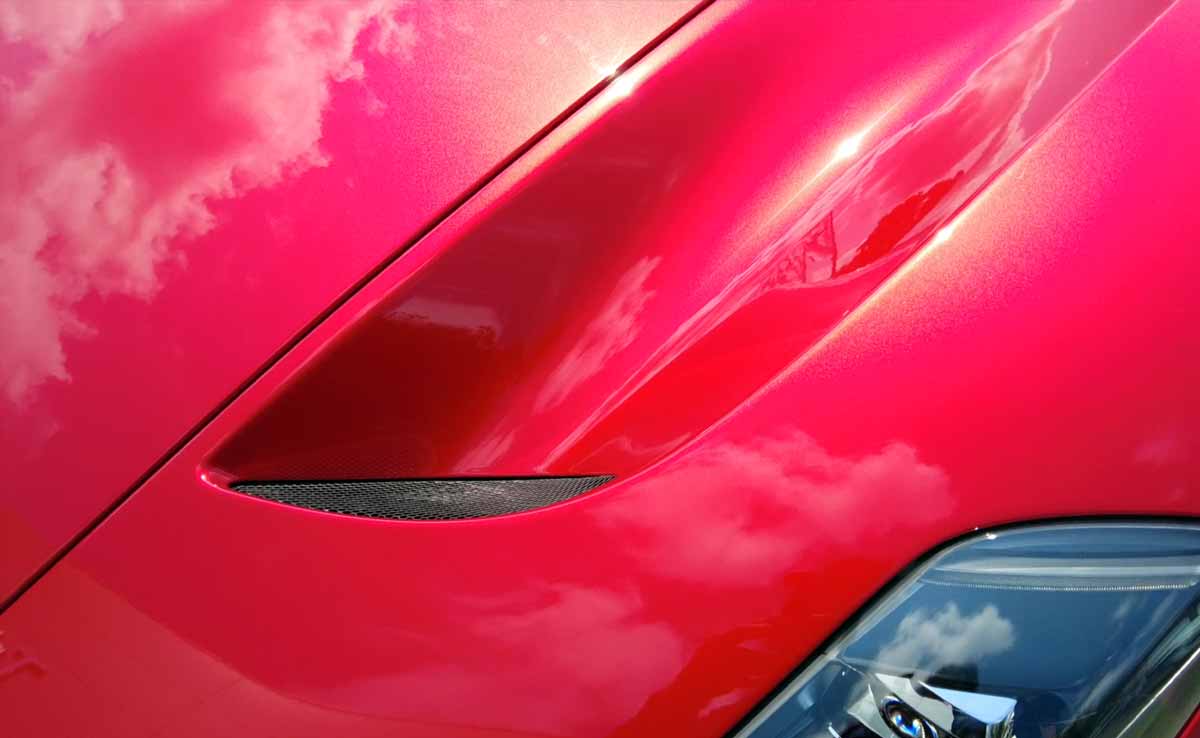
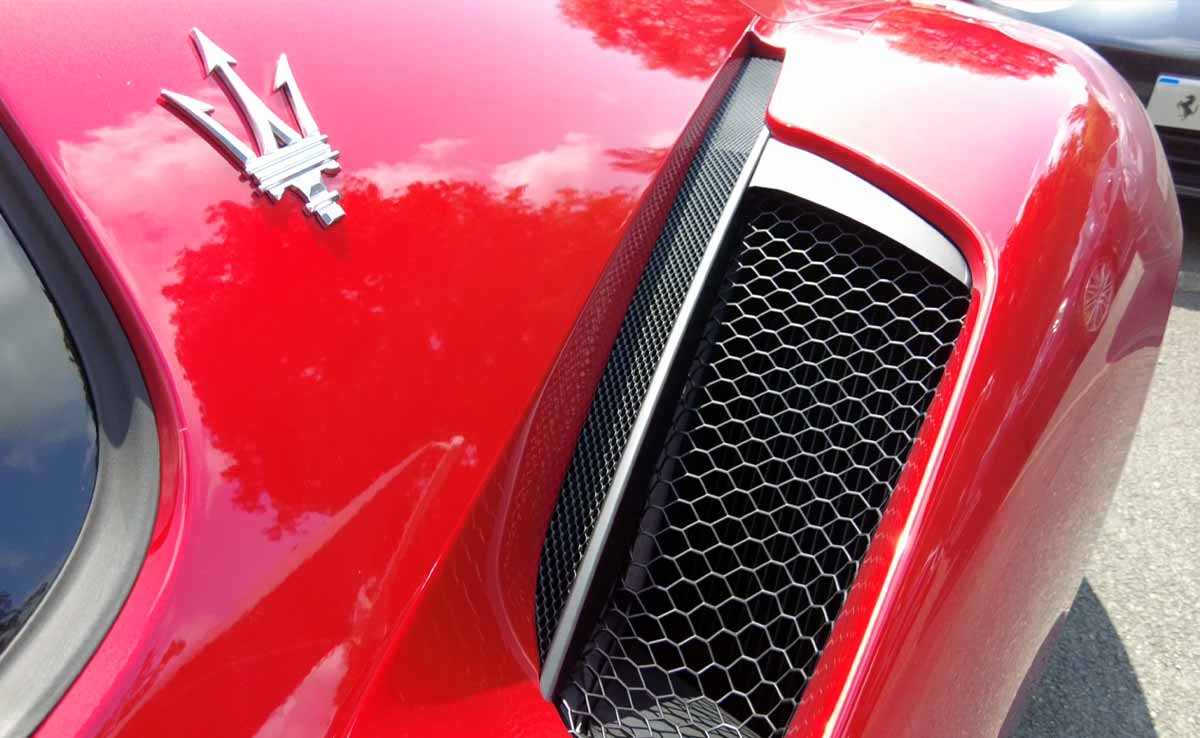
Performance, sensation: an old-fashioned supercar
Aboard the MC20, I find the same sensation as in an Alfa Romeo 4C: that of being in the cockpit of a big go-kart, where sensations are not sanitized. It's not for nothing that I feel this similarity. The Alfa Romeo 4C, like the MC20, has a mid-rear engine, a carbon monocoque chassis and is (or was) assembled at the Maserati factory in Modena. The MC20 is therefore a bigger 4C, with almost three times as much power, as it moves from a 240 hp 2.0L 4-cylinder engine to a 630 hp 3.0L V6.
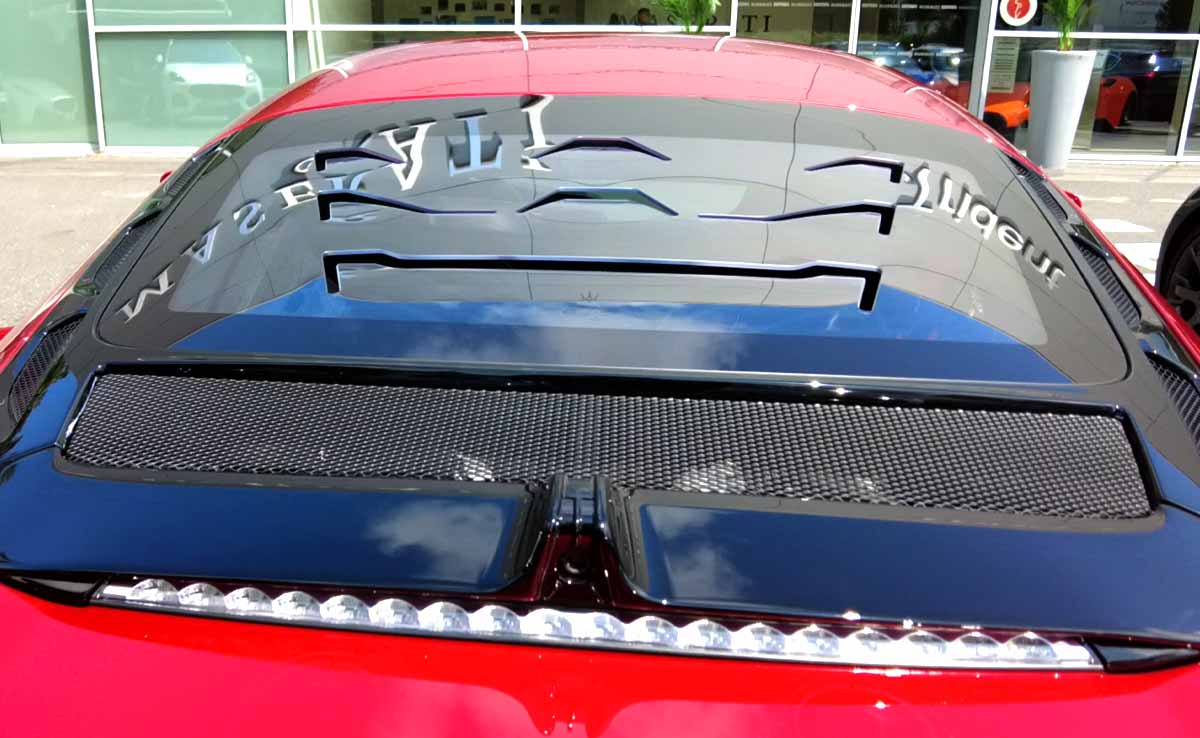
In short, as soon as the engine is warmed up, I accelerate hard, and I love these moments, because every time I try a car, it's always like a first time: the apprehension of whether I'm going to be disappointed, surprised, excited, etc. So I accelerate with the MC20, and then it's a blast. So I accelerate with the MC20, and it's a real thrill. I rediscover sensations I haven't experienced in a long time. The 630 hp engine and 730 Nm of torque send all the power to the rear wheels and, with every acceleration, whatever gear you put it in, the car wiggles from the rear and it's really pleasant. The three times I've felt this way were with the Lamborghini Gallardo, the Ferrari 458 and the Alfa Romeo 4C.
What I like about the MC20 is that, in a contemporary car, the sensations are less aseptic than in the latest supercars. More and more, the new supercars are "easy" to drive. This isn't a bad thing; in fact, it's what customers want. Starting with the 488 and Portofino, Ferrari has taken a step forward in terms of ease of driving (despite their ever-increasing power), while at the same time offering an increasingly luxurious interior. This was also the case at Lamborghini, with the switch from the Gallardo to the Huracán.
The MC20 is easy to drive, of course, but I found more "raw" sensations than in more recent supercars. Driving the MC20 also reminded me a little of the Ferrari 458 I'd tested ten years earlier on the racetrack (without the noise of the V8 atmo). That's why I find the MC20's positioning interesting, as an Alfa Romeo 4C (often judged as a mini-supercar) turned supercar. I wouldn't compare it to the latest Ferrari 296 GTB which, although it is a contemporary Ferrari with a V6 engine, is in another power category (880 hp...), or to the Lamborghini Temerario and its 920 hp V8...
Paradoxically, while the MC20 is still in production, it is rather comparable to older generations of supercars.
| Maserati MC20 | Ferrari 458 italia | Ferrari 488 GTB | Lamborghini Huracan Evo | |
|---|---|---|---|---|
| Engine | V6 3.0L 630 hp | V8 4.5L 570 hp | V8 3.9L 670 hp | V10 5.2L 640 hp |
| 0 to 100 km/h | 2.9 sec | 3.4 sec | 3 sec | 2.9 sec |
| 0 to 200 km/h | 8.8 sec | 10.3 sec | 8.3 sec | 9 sec |
| Vmax | 326 km/h | 325 km/h | 330 km/h | 325 km/h |
| Weight | 1475 kg | 1380 kg | 1370 kg | 1422 kg |
V6 sound: disappointing
One of the MC20's weak points is clearly engine noise. Where the V8 atmo of a 458, the V8 turbo of a 488, the V10 atmo of a Gallardo or the V10 atmo of a Huracán have an exhilarating side, the V6 of the MC20 does what it can. The sound is not unpleasant, but it's not the exhilarating side you'd expect from a supercar. I spoke to a Maserati engineer who told me that they had done their utmost in this respect, in relation to what the engine could offer. Still, I think we're left a little disappointed.
When you hear what an Alfa Romeo V6 Busso could offer more than twenty years ago, or what the latest Ferrari V6 PHEV can offer today, I think the specifications have not been met. If it had been up to me, I wouldn't have approved the launch of the MC20 until the sound had been improved.
As an aside, when you go to Maserati and decide between a Grecale Trofeo with the Nettuno V6 or a Levante V6 or V8, and you start the engines... well, you end up with the Levante. I close the parenthesis. Sound is Maserati's signature.
Price: too expensive? Depends on who it's for
V6 sound aside, the MC20's main "non-success" is probably its price. For several years now, I've been taking part in car outings with other Italian car owners, and it's clear that, when we talk about the MC20, what comes to mind is: "It's beautiful, but for the price of an MC20, I can have a Ferrari! Or: "If I buy this MC20, it will lose more value than a Ferrari". And these arguments are true, I can't deny it. For less than €300,000, it's possible to have a new Ferrari 296 GTB, or access to many fine pre-owned models.
On the other hand, and in spite of herself, an MC20 will be far more exotic than a Ferrari or Lamborghini, which each sell well over 10,000 cars a year, while Maserati has produced just over 2,000 examples of the MC20 since 2020.
When it comes to money, perhaps the MC20 is not for those who systematically look at a car's discount, but for those who couldn't care less. After all, isn't that the definition of luxury?
Future collector? The last of its generation?
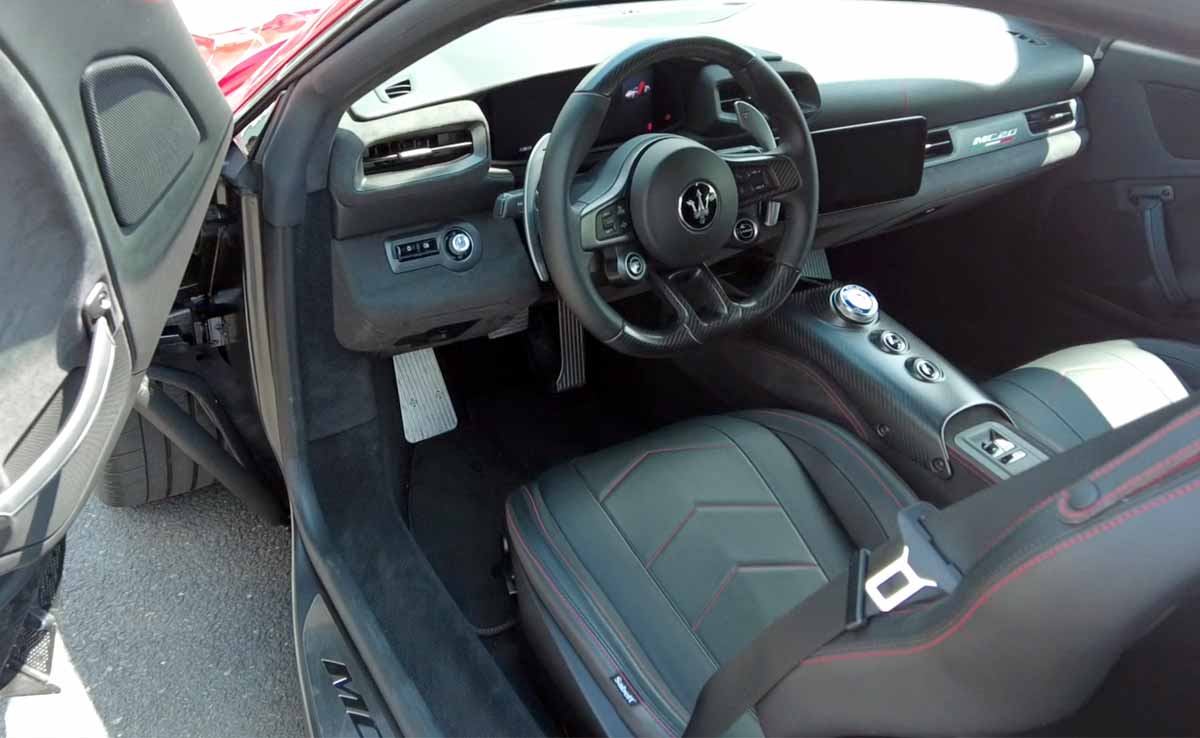
In my opinion, the MC20 has all the makings of a future collector's item. It is the last supercar of its generation to offer one of the most beautiful designs, a carbon monocoque chassis resulting from a collaboration between Maserati and Dallara, a non-hybrid twin-turbo V6 engine located behind the ears, and to deliver "raw" sensations.
It may be considered too expensive today, as it was when the Alfa Romeo 4C was produced, but the latter's value has risen steadily since production ended.
I can also remind you that the Maserati MC20 was used as the basis for the Alfa Romeo 33 Stradale, which is said to cost around €2 million. So an MC20 at €250,000 or €300,000 is almost a bargain.
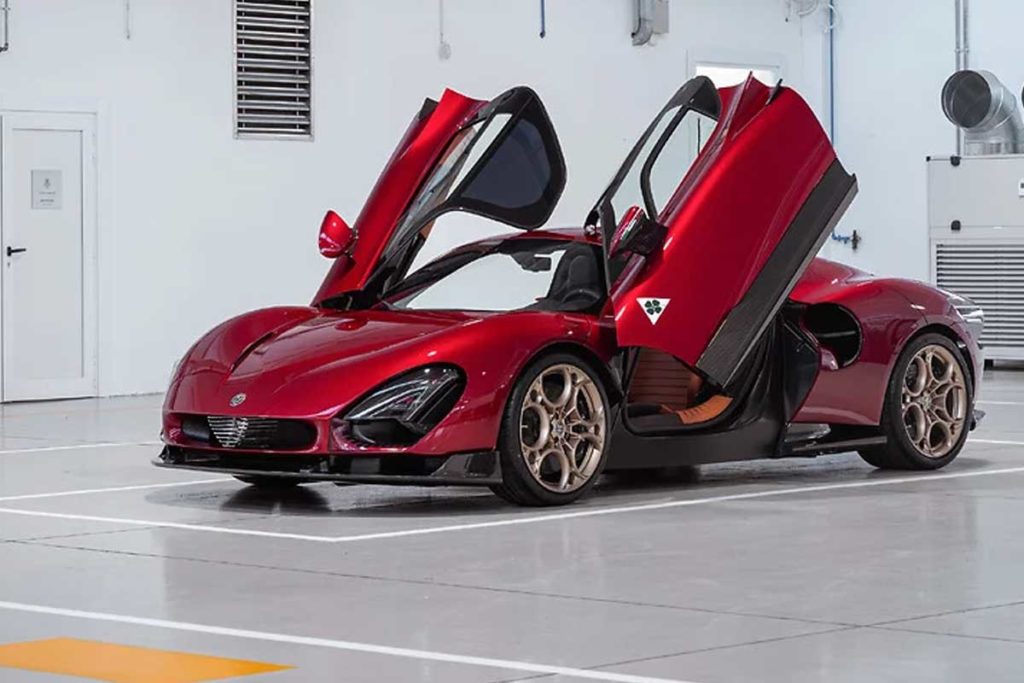
It could be the last of its generation. One day, this MC20 will be replaced (or not...) and, if so, it will probably be by a version with a PHEV hybrid engine, which is certainly more powerful, but inevitably comes with its share of technical constraints and additional weight (battery, electric motor).
Who is this Maserati MC20 for?
This Maserati MC20 is clearly not for everyone (otherwise it would be a bestseller). But it should interest you if :
- You've already owned several supercars and you want an Italian car that's even more exotic than a Ferrari or Lamborghini.
- You love beautiful old-fashioned Italian design and you're not convinced by the design of the new supercars.
- You don't look at the price of a car because you don't think about resale in the short term.
- You want a car that delivers pure, unadulterated sensations.
If you're interested in this MC20 and you're not sure what to make of it, go and take one for a test drive at a Maserati dealer: you might just fall for it if you recognize yourself in the above points.
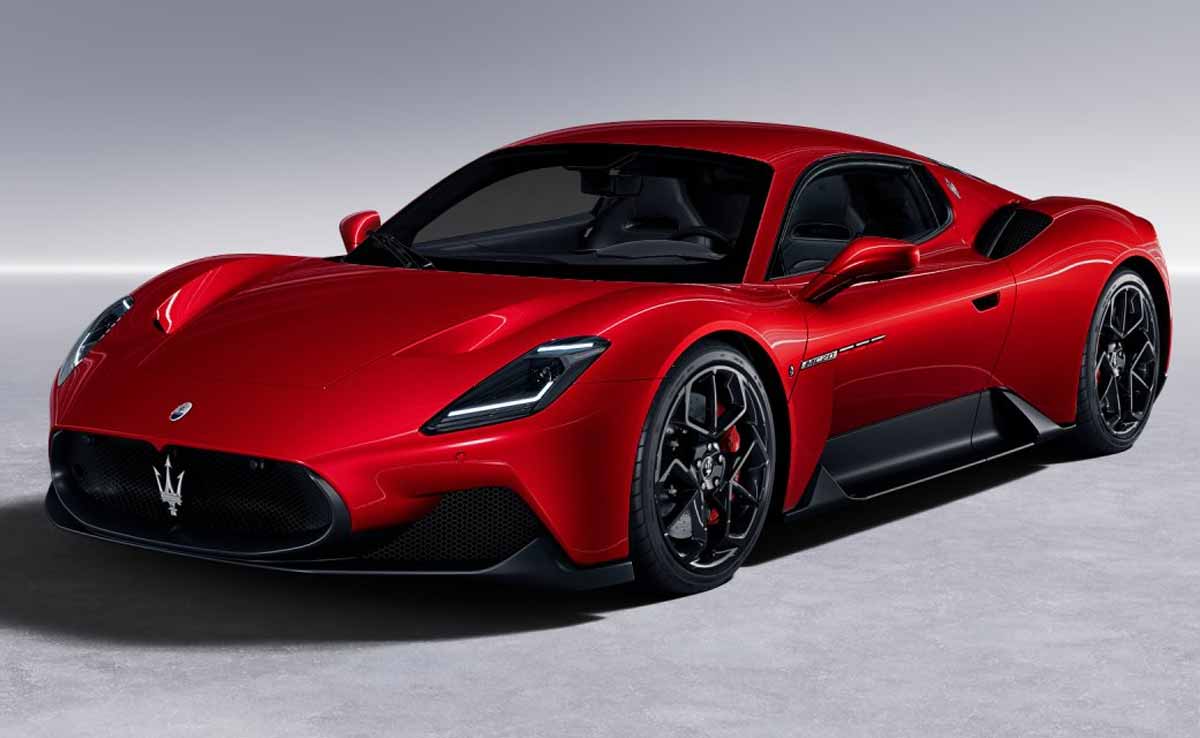
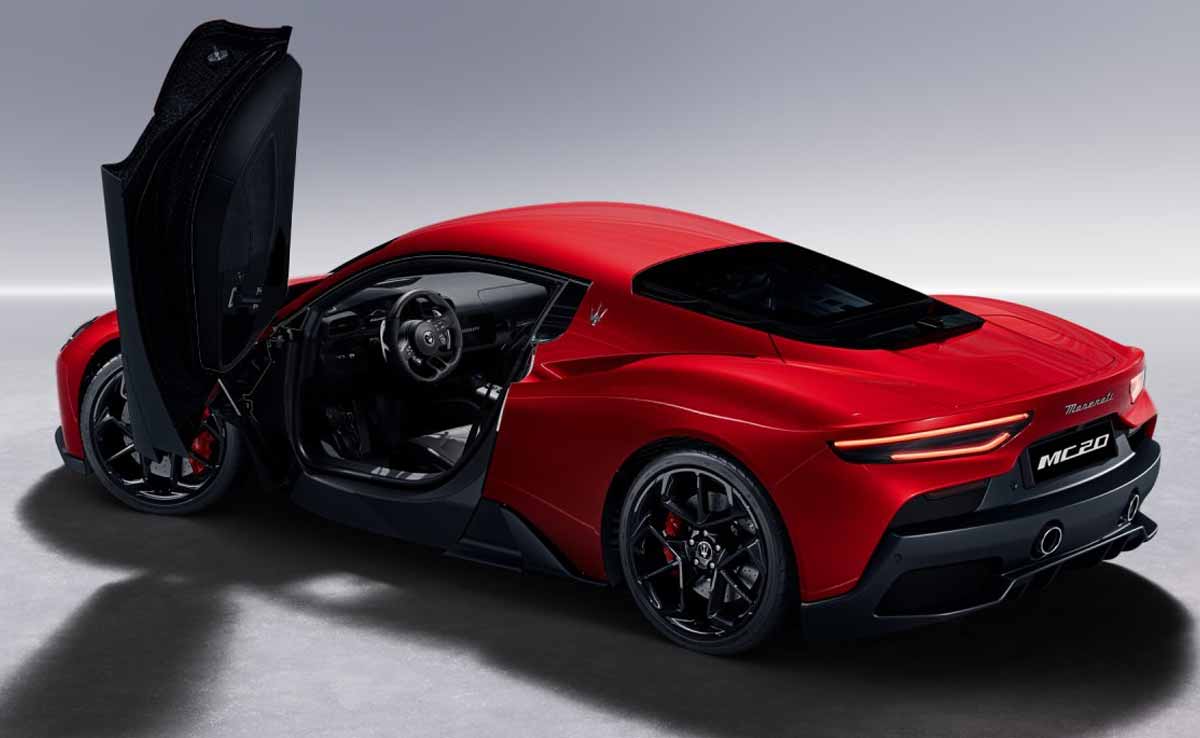
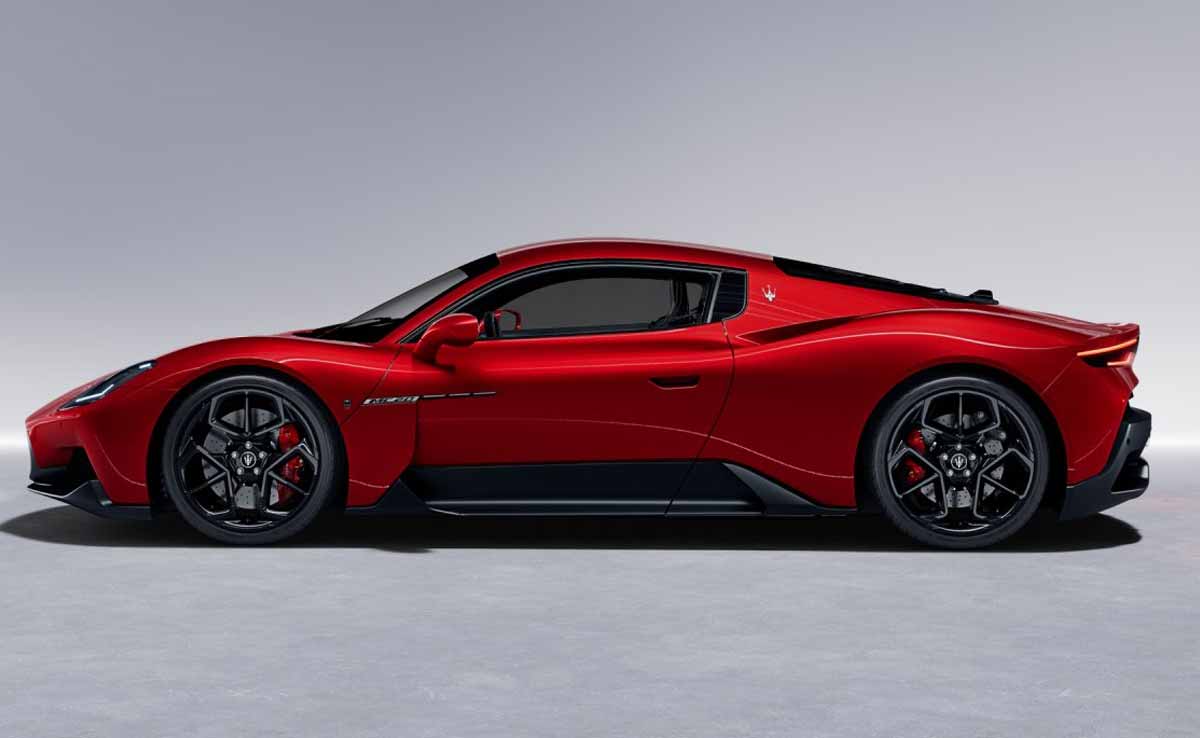




"The design of the Maserati MC20 is probably the most Italian, the most Latin, of contemporary supercars."
I couldn't agree more. It has a design that reminds me of the Ferraris of the late 90s and early 2000s, with soft, round, curved lines. Not like today, with a design that revolves around the CX, with angles, breaks and a cruel lack of harmony. This MC20 is magnificent.
Porsche hat für den Klang Akustiker im Einsatz.
Der V6 Motor, 90 Grad Winkel, hat ungleiche Zündabstände, ev. auch ein Grund.
Wie schön wäre ein V8!
Thank you for this article
Your opinion is in line with that of EVO magazine, which named it Car of the Year (in 2022, from memory).
Faced with more high-tech or high-performance cars, they too appreciated the car's "old-fashioned" roughness.
Great, thanks for the feedback 🙂
Guter Geschmack macht einsam
Das Design des MC20 ist jedenfalls einmalig zeitlos und stellt so manchen Ferrari deshalb in den Schatten... Ciao